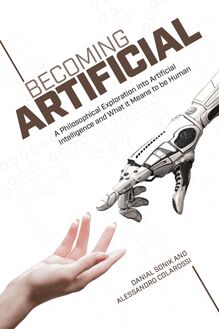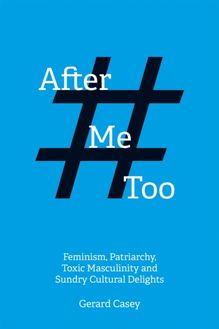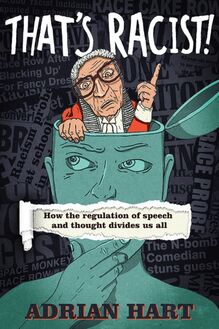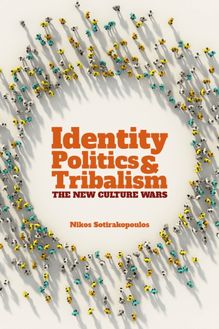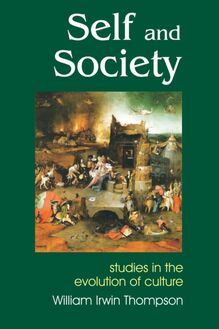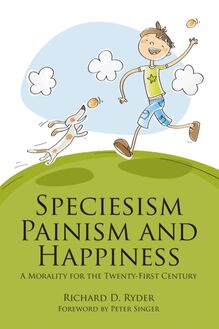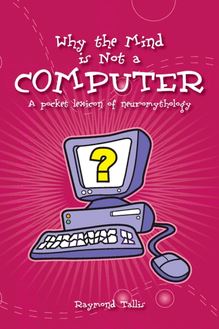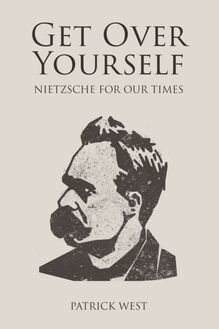Here For Our Children's Children? , livre ebook
72
pages
English
Ebooks
2016
Vous pourrez modifier la taille du texte de cet ouvrage
Obtenez un accès à la bibliothèque pour le consulter en ligne En savoir plus
Découvre YouScribe en t'inscrivant gratuitement
Découvre YouScribe en t'inscrivant gratuitement
72
pages
English
Ebooks
2016
Vous pourrez modifier la taille du texte de cet ouvrage
Obtenez un accès à la bibliothèque pour le consulter en ligne En savoir plus
Publié par
Date de parution
24 mars 2016
Nombre de lectures
1
EAN13
9781845406226
Langue
English
Publié par
Date de parution
24 mars 2016
Nombre de lectures
1
EAN13
9781845406226
Langue
English
Title Page
Here For Our Children’s Children?
Why we should care for the Earth
Adrian C. Armstrong
imprint-academic.com
Publisher Information
First Published in the UK by
Imprint Academic
PO Box 200
Exeter EX5 5YX, UK
Digital edition converted and distributed in 2016 by
Andrews UK Limited
www.andrewsuk.com
Copyright © Adrian C. Armstrong, 2009
The moral rights of the author have been asserted. No part of this publication may be reproduced in any form without permission, except for the quotation of brief passages in criticism and discussion.
The opinions expressed herein are those of the author and do not necessarily reflect those of Imprint Academic or Andrews UK Limited.
About the Author
Adrian Armstrong is an hydrologist with 30 years practical experience of water management in agricultural and ecological contexts. He is honorary professor at Birmingham University, where he lectures in Environmental Ethics, and is also a priest in the Church of England.
Dedication
To my grandchildren Ben and Grace -
it’s your world now -
and in memory of Professor John B. Thornes
Acknowledgements
Here I need to thank all those who have encouraged me to bring this book to completion, and whose ideas and conversations have helped me along the way.
Specifically I would like to thank both Malcolm Clark and my daughter Helen for reading the text; my friends of the Society of Ordained Scientists who have provided so much input over the years; and of course my wife, Margaret, who has both tolerated the work involved, and inspired me to make the effort to do it.
Chapter 1
Introduction
In the film An Inconvenient Truth , Al Gore interrupts his exposition of climate change to relate the story of a lifethreatening accident to his son. He then explains that this incident showed him how precious human life was, and how much he wanted to preserve the planet for this precious child, and hence for all sons and daughters. In this single section, he opens up the whole issue of environmental ethics, and so seeks to identify and justify his concern for the environment. He introduces this section of the film by saying:
Ultimately this is really not a political issue so much as a moral issue. If we allow that [i.e. massive rises in atmospheric CO2] to happen, it is deeply unethical.
His personal response to the question: “why care for the environment?” is then that he values it and wants it to be there for his children. He wants the precious environment to be available to his precious children. His answer is of course only one of the many possible ways that this question can be answered. This book is an attempt to explore the variety of answers to that same single question, but it is not an attempt to evangelise for any one view. Rather, it attempts to show how many people have different views, and that for the successful resolution of conflicts, we all need to be aware of those many different ways of approaching a common set of problems.
The modern world is awash with arguments about the environment. Membership of environmental groups is flourishing: both the established preservation societies such as the RSPB, [1] The National Trust, the local Naturalists Trusts; and the more campaigning organisations such as Friends of the Earth and Greenpeace. There are also political parties with an explicitly environmental agenda: the “Green Party”. This movement is not restricted to the UK, indeed it could be argued it has been led from outside. There is now European legislation leading the way: the European Habitats Directive and legislation for the protection of water (the European Water Framework Directive) and air, and international treaties such as the Ramsar Convention on Wetlands. A history of the Environmental movement is given by McCormick (1995), an illuminating analysis of the progress of environmental concern in the political sphere by Dryzek et al . (2003), and the development of European Environmental Policy by Jackson (2002).
Underlying all this concern is an implicit though often un-stated ethical dimension, a dimension that tells us what we ought to do. Every time some one says, “we must preserve this natural feature,” or “we must protect the environment”, “we must prevent pollution”, “we must act responsibly” and so on, they are making an ethical statement. The little word “must” implies an ethical content to the statement. It implies that according to some sort of value system, there is indication of how we ought to behave, a set of values that we should preserve, and so on, and these have implications for a specific environmental issue.
This book is an exploration of the role of ethics in the studies of the environment. It is not an attempt to propound a particular view of ethics, or necessarily to convince the sceptical of the virtues of the environmental movement. Rather it is an attempt to equip the reader with some of the critical apparatus to make their own decisions, to come to their own conclusions.
A brief personal note
The engagement with environmental ethics arose out of the professional life of the author. In 1975, he joined the Ministry of Agriculture Fisheries and Food as a Research Scientist attached to the Field Drainage Experimental Unit. The remit of this unit was to improve the science underlying the practice of field drainage, which was then receiving grant aid at a rate up to 60% of the capital cost. This was all part of the continued support to agriculture that had been a central plank of government agricultural policy since the 1939-45 war (Martin, 2000), and which had been restated in a government white paper the same year: Food from our own resources (MAFF, 1975).
Subsequently, the author became a non-stipendiary priest in the Church of England, serving the church on Sundays and in the evenings, whilst remaining an active scientist during the working day. This book is in part an outcome of the creative tensions introduced by this dual role, as a scientist and as a priest, and the way the two interact: the environmental scientist posing the questions, and theological reflection positing some of the possible answers. The same material was then used as a starting point for a series of lectures on environmental ethics at the University of Birmingham Department of Geography, forming a component of an “Environmental Management” course.
There has also been significant interest from my colleagues, both academics and environmental professionals. Papers presented at conferences (Armstrong, 2000, 2006, & 2007) have generated interest, and a whole workshop (with European Science Foundation funding) was devoted to the ethics of wetland management. This essay is aimed as much at those professional colleagues as to my students.
This personal explanation also places the whole work in the context of the UK and the Christian religion. A parallel book could be written in another country from another tradition, but it would be very different, and I would be unable to write it.
What do we mean by ethics?
Ethics is the study of how we ought to behave, and how we reach decisions about our actions. It is primarily concerned with the way human beings decide what is right and what is wrong, and how they then apply those insights in their everyday behaviour. It is thus concerned with defining what is the correct thing to do in a given situation. If the characteristic word that gives any statement an ethical status is “must”, then ethics is the study of the answering question: “why?” Ethics as a study area thus seeks to identify the reasons for adopting certain modes of behaviour, and for making certain decisions.
Ethics can be a deeply philosophical study, concerned with abstract relations between value systems, or it can be an immensely practical study concerned with the articulation of issues in specific circumstances. It can also be viewed as an essentially religious study, or a sociological one seeing how societies work out their decisions and how they support them. In this book, ethics are taken in the sense of practical ethics, of what is right and wrong in a specific subject area, which is the care for the environment. We thus ask how we reach ethical decisions relating to our care of the environment and the natural world.
A brief survey of the literature reveals an enormous number of approaches to ethics, both amongst the philosophers who have debated how to reach ethical decisions, and those who have proposed ethical systems. Indeed, ethics has been an essential component of all philosophy as far as it has been about human behaviour. Equally, nearly all religious systems have included ethical statements in their doctrines. So whereas the first systematic exposition of ethics is that of Aristotle, dating to the fifth century BC, the Bible contains in its first five book ethical codes going back probably a millennium before that; and even older codes can be found in the eastern religions (reflected for example in the teachings of the Buddha and Confucius). It is thus useful to identify a few of the various bases for thinking about ethics, and particularly the terminology they use. These relate specifically to the question of the sources of ethical understanding, and the definition of right and wrong that flows from them. They are thus to be distinguished from practical ethics, which addresses the issues associated with a particular application (such as environmental ethics, which is the subject of this book).
Natural ethics
By “natural ethics” we refer to that component of ethical thinking that finds the source of its inspiration in nature. Although nature itself is a very difficult concept to handle, having a whole

